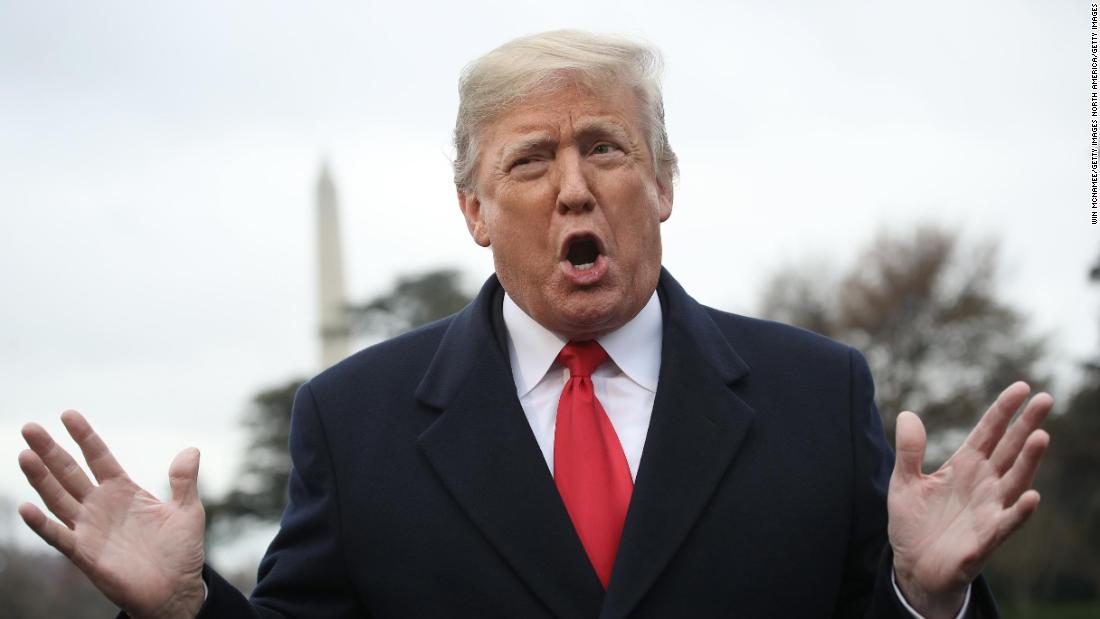
"The reason that the small truck business in the US is such a go to favorite is that, for many years, Tariffs of 25% have been put on small trucks coming into our country. It is called the 'chicken tax.' If we did that with cars coming in, many more cars would be built here [...] and G.M. would not be closing their plants in Ohio, Michigan & Maryland. Get smart Congress. Also, the countries that send us cars have taken advantage of the U.S. for decades. The President has great power on this issue - Because of the G.M. event, it is being studied now!" Trump tweeted.
The tweet came after GM announced plans this week to cut 14,000 jobs and shut five facilities in North America, dealing a blow to the President's promise to help auto workers. GM said the moves are designed to prepare the company for a future of driverless and electric vehicles. GM is also responding to a consumer shift away from sedans in favor of trucks and SUVs.
What's the 'chicken tax'?
The 'chicken tax' or 'chicken tariff' the President mentioned in his tweet was imposed by the US in the 1960s in response to a tariff by some European countries on American poultry exports. It sparked tariffs on foreign-made brandy, dextrin, potato starch and vehicles -- specifically, light trucks, such as pickups.
Eventually, the tariff on American-grown chicken disappeared, but Washington's 25% tax on foreign-made light trucks remained.
As a result, Asian automakers make pickups in North America -- but they've yet to dent the Big Three's stranglehold on pickup market. That's because pickup trucks built by US manufacturers have among the most loyal customers who don't like to move from one American manufacturer to another, let alone to a foreign manufacturer.
But because the trucks (both pickups and SUVs) are more profitable, US manufacturers like GM have put their resources into that part of the market, and moved away from producing other car models -- such as sedans -- that aren't as competitive.
Would tariffs on more foreign-made vehicles work?
It's unclear just how much of a positive impact additional tariffs would have on American car companies. Information from Autodata shows that last year Asian automobile manufacturers built 71% of the cars they sold in the US in North America, and 69% of the light trucks they sold in the US. Some of those trucks were SUVs that would not have been subject to the "chicken tax."
European manufacturers make fewer of their cars in the US. But they did build 665,000 of the 1.6 million cars they sold in the US at North American plants -- where they aren't subject to tariffs anyway.
Meanwhile, Trump's aggressive tariffs on steel and aluminum imports are also weighing on US automakers. Automakers across the board have faced rising material costs because of the tariffs on steel and aluminum, which went into effect earlier this year.
They're bracing for the possibility of new duties on foreign-made vehicles and auto parts, and while GM did not mention trade in its announcement about closures, the company did say the tariffs "could still lead to less investment, fewer jobs, and lower wages for our employees" in a comment filed with the Commerce Department.
GM said last month that it expects to spend $1 billion more next year on commodities such as steel and aluminum. While those tariffs are already in effect, GM has long-term supply contracts that locked in lower prices. But by next year the higher market prices will start to raise its costs, even from domestically-produced steel and aluminum, since those US mills no longer have to compete with lower-priced imports.
Bagikan Berita Ini














0 Response to "Why Trump is talking about a 'chicken tax'"
Post a Comment